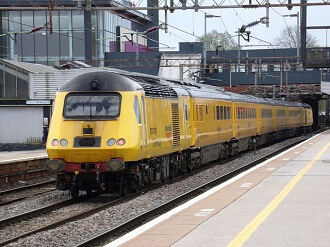Network Rail Sells Commercial Properties For £1.5bn
Network Rail Sells Commercial Properties For £1.5bn

Network Rail has confirmed plans to sell off its commercial property portfolio to private equity firm Blackstone Group and property management group Telereal Trillium in one of the UK’s largest ever real estate transactions.
The sale of 5,200 properties – mostly shops set in converted railway arches – will bring in £1.46bn for the national railway operator, which says it will use the cash injection to fund much-needed railway upgrades.
Tenants of the properties have however expressed concern that the sale could lead to rents being increased and businesses being forced out of their premises. A tenant group dubbed Guardians of the Arches has campaigned vociferously against Network Rail’s plans to sell since the proposals were announced in November 2017. A spokesperson for the group said that its members “dispute whether selling off the whole estate in one job lot is the best way of supporting small businesses and the local economies which rely on them.”
Tensions have run high between Network Rail and the tenants of its commercial property arm for several years, as the cash-strapped rail operator has enforced steep rent increases. Network Rail however maintains that the properties’ new landlords will adopt a “tenants first” approach and deal with tenants and local communities “in an open and honest manner.”
Blackstone and Telereal have stated that they will contact all tenants and publish a new tenants’ charter outlining a code of conduct for property management. In addition, long-term tenants who are financially struggling will receive “financial and other support” from the freeholders.
A spokesperson for the Department of Transport gave approval to the plans, stating: “Tenants’ rights have been safeguarded and all current agreements between Network Rail and tenants will be fully honoured.”
Partner and commercial property lawyer, Jeff Elphee, commented:
“It is understandable that a new landlord with a principal focus on return and expertise in property may give rise to concern, although further investment could help promote areas and become a positive thing for existing occupiers; it does highlight however the importance of robust legal advice when entering into binding obligations “.
Businesses left vulnerable by “fragile” tenancy agreements
Tenants of the properties however say that their current agreements do not provide adequate protections against rent exploitation from new freeholders.
Shopkeeper Chris Hill – who has operated a wine and spirits business in a Leeds Network Rail premises for the past decade – says that promises made regarding the continuity of his current contract offer scant reassurance to the contrary.
“What’s been promised is that whatever is in my ten year [lease] agreement will be transferred, no questions asked. But we have quite a fragile tenancy agreement, where Network Rail can give me six months’ notice,” he says.
In light of this notice provision, Mr. Hill says he has little meaningful, legal reassurance that Blackstone and Telereal will uphold his current rent agreement, stating: “It makes my tenancy agreement look much more fragile when someone else is in charge of it.”
Criticism has also come from the Labour party, which called the sale “highly irresponsible,” with shadow rail minister Rachael Maskell terming the deal potentially “damag[ing]” for the small businesses leasing the properties.
The Guardians of the Arches campaign group has requested that the new landlords carry out a “full, transparent rent and lease audit” to assuage tenants’ concerns of being driven out by higher rents.
Network Rail says tenants will benefit from deal
Sir Peter Hendy, chairman of Network Rail, has maintained that renters only stand to benefit from the transaction, saying: “For tenants it will mean significant commitment and investment, and for passengers and taxpayers it will mean massive, essential improvements without an extra burden on the public purse.”
The rail operator decided to sell its commercial arm last year on the basis of its £50.4bn debts and projections that it would use “all of its available borrowing” – the remaining £4.1bn of a £30.9bn government loan facility – in the next year.
Having been reclassified as a public body, Network Rail is unable to borrow money on the private market. In this context, the rail operator argues that commercial property tenants will benefit from new, private commercial landlords.
Blackstone and Telereal have outlined plans to invest extensively in the property portfolio and to convert 900 currently disused arches into new shop spaces. The companies say they will invest “substantial amounts of capital” into the railway properties and provide a “long term” role as landlord for leasing businesses, currently making plans on a 150 year timescale.
Contact our commercial property experts today
How to Choose the Right Commercial Property from IBB Solicitors
Whether you are acquiring, disposing of, developing, managing or funding commercial property, we can help. Call us now for expert, impartial and professional advice on 03456 381381, or email us at CRE@ibblaw.co.uk

